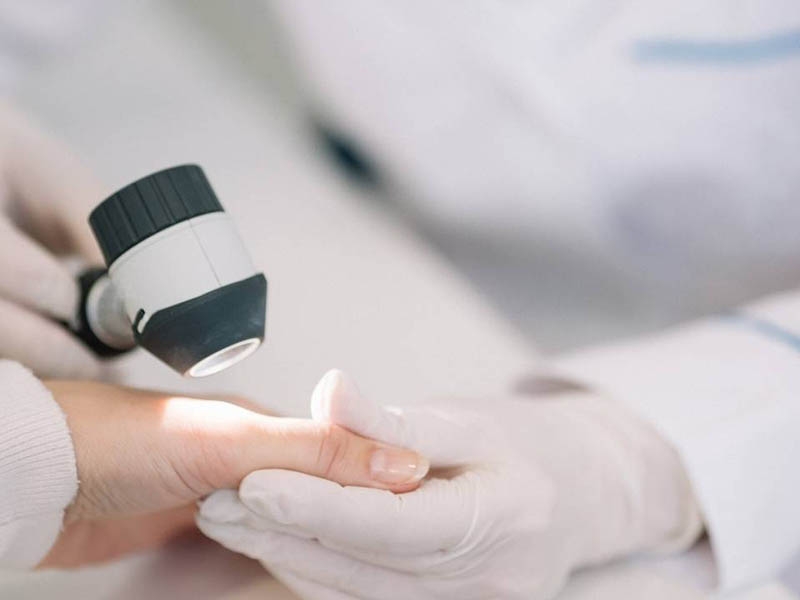
Dermatologist
Watch our video about Dermatologist
What Does a Dermatologist Do?
A Dermatologist is a medical professional specialising in the diagnosis, treatment, and prevention of conditions affecting the skin, hair, nails, and mucous membranes. Their expertise ranges from managing common issues like acne and eczema to diagnosing and treating serious skin diseases, including skin cancer. Dermatologists also play a crucial role in cosmetic dermatology, helping patients improve their appearance and confidence through advanced treatments.
At Clinic Consultation, our Dermatologists offer personalised care, combining their extensive medical knowledge with the latest technologies. They aim to address not only the physical symptoms but also the emotional impact of skin-related conditions, ensuring a comprehensive approach to patient well-being.
What Conditions Does a Dermatologist Treat?
Dermatologists manage a wide variety of skin, hair, and nail conditions, including:
Acne
Treats mild to severe acne with tailored treatments to reduce scarring and prevent breakouts.Eczema and Dermatitis
Provides relief for itchy, inflamed skin through medications and skincare advice.Psoriasis
Manages this chronic condition with treatments that reduce inflammation and improve skin appearance.Skin Cancer
Detects and treats melanoma and non-melanoma skin cancers, offering surgical and non-surgical options.Rosacea
Controls facial redness and flushing with personalised care plans.Alopecia (Hair Loss)
Diagnoses causes of hair thinning or baldness and recommends effective treatments.Fungal Infections
Treats nail and skin infections caused by fungi, ensuring a thorough recovery.
How Can a Dermatologist Help?
Dermatologists address both medical and cosmetic concerns, offering treatments that improve the health and appearance of the skin, hair, and nails. From diagnosing chronic skin conditions to performing mole checks, they ensure early detection and treatment of potentially serious issues like skin cancer.
Beyond medical care, Dermatologists at Clinic Consultation provide aesthetic treatments, including anti-ageing procedures and acne scar reduction, helping patients achieve their desired appearance. They also educate patients on maintaining healthy skin through lifestyle adjustments and proper skincare routines.
What Tests Does a Dermatologist Request?
Dermatologists often rely on various diagnostic tests to identify and manage conditions. These include:
Skin Biopsy
Removes a small sample of skin for laboratory analysis to diagnose rashes, cancer, or other abnormalities.Allergy Testing
Identifies allergens causing skin reactions like dermatitis or hives.Dermoscopy
Uses a specialised magnifying device to examine moles and pigmented lesions for early signs of skin cancer.Blood Tests
Detects underlying conditions affecting the skin, such as autoimmune disorders or nutritional deficiencies.Wood's Lamp Examination
Utilises ultraviolet light to detect fungal infections or pigment disorders.Patch Testing
Helps diagnose contact dermatitis by exposing skin to suspected allergens.Microscopic Examination
Analyses hair or nail samples to identify fungal infections or other issues.
When Should You See a Dermatologist?
Timely consultation with a Dermatologist is crucial for effective treatment and prevention of skin-related conditions. Here are seven key scenarios:
Persistent Skin Issues
Chronic conditions like eczema, psoriasis, or acne that don’t improve with over-the-counter treatments should be evaluated by a Dermatologist.Changing Moles or Lesions
Any mole or skin lesion that changes in size, shape, colour, or texture could indicate skin cancer and needs immediate attention.Unexplained Rashes or Itching
Ongoing rashes or itching might signal an underlying allergic reaction or autoimmune condition.Hair Loss
Sudden or excessive hair shedding could result from hormonal imbalances, nutritional deficiencies, or autoimmune diseases.Nail Discolouration or Thickening
Changes in nail appearance can point to fungal infections or systemic health problems.Skin Sensitivity or Sun Damage
Frequent redness, irritation, or visible sun damage requires expert advice to prevent further harm.Cosmetic Concerns
Wrinkles, pigmentation issues, or acne scars can be addressed with aesthetic dermatology procedures for enhanced appearance and confidence.
How to Prevent Skin-Related Diseases
Preventive measures are key to maintaining healthy skin. Regular use of sunscreen with a high SPF protects against UV damage, reducing the risk of premature ageing and skin cancer. A balanced diet rich in vitamins and antioxidants supports skin health from within, while proper hydration keeps the skin supple and radiant.
At Clinic Consultation, our Dermatologists provide tailored advice on preventive skincare routines, including recommendations for moisturisers, cleansers, and other products suited to your skin type.
What to Ask a Dermatologist During the First Consultation
To make the most of your visit, consider asking:
- What is causing my skin condition?
- Are there lifestyle changes that could improve my skin?
- What treatments are available for my condition?
- Are there risks or side effects associated with the recommended treatment?
- How can I prevent future flare-ups?
- What skincare products are best for my skin type?
- Should I return for follow-ups or screenings?
Book Your Appointment at Clinic Consultation
Dermatologists are essential for diagnosing and managing a wide range of skin, hair, and nail conditions. At Clinic Consultation, our experienced specialists provide expert care tailored to your unique needs. Schedule your consultation online today and take the first step towards healthier, more radiant skin.
Click here to schedule an appointment online